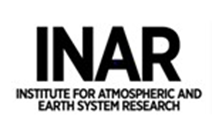Pan-Eurasian EXperiment – Academic Challenge (PEEX-AC) Network
The PEEX-AC main goal is to strength international added value and prestige of the Finnish Universities educational system.
Main objectives:
- To strength the University of Helsinki (UH) and Russian State Hydrometeorological University (RSHU) collaboration in the PEEX research and education agenda;
- To share knowledge, experience and promote state-of-the-art research and educational tools through organization of research training Intensive Course (IC) on “Multi-Scales and -Processes Modelling and Assessment for Environmental Applications”;
- To improve added value of research oriented education in Finnish and Russian Universities systems and boost the PEEX international collaboration.
The added value of the PEEX-AC network and IC will allow to add more strengthen horizontal collaboration among young generation of Finnish and Russian students. It will speed-up building professional contacts for students and local networks for future carrier and collaboration; additionally contributing to realization of practical themes of the PEEX agenda. Students will get a unique knowledge and experience in integrated approaches for atmospheric, climate, ecosystems, etc. processes measurements; observational and modeling systems understanding; global-regional climate changes; methodological approaches for meteorology-chemistry-aerosols-etc. measurements and modelling; atmosphere–land–ocean interactions and feedbacks; etc. These will significantly enhance on-going values received by students’ Russian and Finnish Universities curriculum and joint co-supervision of students on research projects. It will allow to educate a new generation of future professionals for multi- and interdisciplinary studies on national/ international levels.
The added value is also linked to the UH Institute for Atmospheric and Earth System Research (INAR) state-of-the-art modelling systems (EC-Earth, Enviro-HIRLAM, MALTE-Box - part of PEEX-Modelling-Platform) and flagship observation stations (SMEAR – PEEX-Observational-Platform) to be promoted and demonstrated. It will show advanced capabilities of multi-scale and -processes modelling for environmental applications and PEEX tasks. Modelling and observation results (with GIS integration for assessments) will be used in students’ research projects under joint co-supervision. UH will also benefit from exchange of knowledge regarding Russian and Finnish approaches to observational and modelling strategies. All these contributions are valuable asset for further improvement of the University curriculum from educational and research points of view. These will lead to more advanced levels and quality of taking classes/ disciplines with modern knowledge incorporated into lecture and practicum materials. Such updates are needed practical step towards a better quality University educational system.
Duration of the project: 1 Jun 2019 – 31 August 2020
Project Coordinator HEI: Prof. Tuukka Petäjä, Institute for Atmospheric and Earth System Research (INAR)/ Physics, Faculty of Science, University of Helsinki (UH), Helsinki, Finland
- E-mail: This email address is being protected from spambots. You need JavaScript enabled to view it.
- Phone: +358-9191-50878
Project Partner HEI: Prof. Sergey Smyshlyaev, Russian State Hydrometeorological University (RSHU), Department of Meteorology, St. Petersburg, Russia
- E-mail: This email address is being protected from spambots. You need JavaScript enabled to view it.
- Phone: +7-812-6330174
Funding: Finnish National Agency for Education (FIRST+ 2019-2020, Finnish-Russian Student and Teacher Mobility Programme)
See more detailed Project’s Description of Work (DoW)
23 April 2020 - RSHU & UHEL virtual meeting on academia/university education collaboration
Meeting presentations:
- RSHU & UHEL collaboration: history, past and present projects – Eduard Podgaiskii (slides, video)
- RSHU international collaboration. student and teacher exchanges – Katerina Ryazanova (slides, video)
- RSHU scientific research: main directions, existing collaboration and future perspectives - Alexandra Ershova (slides, video)
- Faculty of meteorology and its current challenges: education and research - Yana Drobzheva (slides, video)
- Institute of hydrology and oceanology: education and research - Larisa Timofeeva (slides, video)
- Meteorological practice, training & research at Daimische - Eduard Podgaiskii (slides, video)
- Global-regional scales interactions for atmospheric chemical transport modelling – Sergey Smyshlayev (slides, video)
- Anthropogenic impacts on urban atmosphere: observations and modelling - Aaed Mkhanna (slides, video)
- Distance learning tools for environmental data collection and analysis - Vladimir Chukin (slides, video)
- Science-oriented university education at INAR – Katja Lauri (slides, video)
- PEEX (Pan-Eurasian Experiment) Programme – Hanna K. Lappalainen (slides, video)
- Stations for Measuring Ecosystem - Atmosphere Relation: research and sci. education – Tuukka Petaja (slides, video)
- Earth system and climate modelling – Risto Makkonen (slides, video)
- Online integrated meteorology-chemistry-aerosols modelling: research and sci. education – Alexander Mahura (slides, video)
- Process-based fine scale modelling for meteor-chemistry-aerosol system: research & sci. education – Michael Boy (slides, video)
24 April 2020 - SPBU & UHEL virtual meeting on PEEX collaboration
Meeting presentations:
- Total column ozone winter and spring anomalies over the territory of North Eurasia: measurements and numerical modeling – Sergey Smyshlayev (slides, video)
- Essential climate and ecological atmospheric gases – monitoring and modelling – Yuri Timofeev (slides, video)
- Department of cartography and geoinformatics: education and research – Evgeny Panidi (slides, video)
- Atmospheric aerosol: field and laboratory measurement – Evgeny Mikhailov (slides, video)
- Numerical simulations of the stratospheric warming events - Andrei Koval (slides, video)
- PEEX (Pan-Eurasian Experiment) Program – Hanna K. Lappalainen (slides, video)
- SMEAR (Station for Measuring Ecosystem - Atmosphere Relation) concept and measurements – Tuukka Petaja (slides, video)
- Earth system and climate modeling – Risto Makkonen (slides, video)
- Online integrated meteorology-chemistry-aerosols regional/subregional/urban scale modelling – Alexander Mahura (slides, video)
- Atmospheric aerosols and its impact on climate and health – Michael Boy (slides, video)
- Science-oriented university education at INAR – Katja Lauri (slides, video)
17 June 2020 - SRCES & UHEL virtual meeting on PEEX collaboration
Meeting presentations:
- Levels of ecological safety mapping for the sub-Arctic regions of Russia – Andrei Tronin (slides, video)
- Satellite mapping of ecological risks and damages – Viktor Gornyy (slides, video)
- Mapping of taiga ecosystems evapotranspiration by using results of EOS and flux tower observations – Sergei Kritsuk (slides, video)
- Long-term observations of remote-measured characteristics of Northern Europe ecosystem – Andei Kiselev (slides, video)
- Monitoring and assessing the anthropogenic influence on soil health – Yulia Polyak (slides, video)
- Spectral response of plants on technogenic loadings – Viktor Gruzdev (slides, video)
- Pan-Eurasian Experiment Program – Hanna K. Lappalainen (slides, video)
- Station for Measuring Ecosystem - Atmosphere Relation – Tuukka Petaja (slides, video)
- Multi-Scale Modelling: from Micro-scale Processes to the Earth System – Risto Makkonen (slides, video)
- Observing the forest ecosystems: links between climate change, biodiversity and human activities - Janna Back (slides, video)
- Science-oriented university education at INAR – Katja Lauri (slides, video)
12 November 2020 - INEP KSC RAS & UHEL INAR virtual meeting on PEEX collaboration
Meeting presentations:
- INEP structure and main activities – Vladimir Masloboev (slides, video)
- Terrestrial ecosystems studies – Eugene Borovichev (slides, video)
- Euro-Arctic freshwater studies – new challenges and solutions – Dmitri Denisow (slides, video)
- Ecology of microorganisms – directions for research collaboration – Maria Kornejkova (slides, video)
- Decrease the environmental hazard of mining waste and ecofriendly technology development – Dmitri Makarov (slides, video)
- INEP socio-economic studies – Elena Klyuchnikova (slides, video)
- INEP modelling approaches –Vladimir Masloboev (slides, video)
- Educational approaches and science promotion – Eugene Borovichev (slides, video)
- Pan-Eurasian Experiment Program (PEEX) program, science plan and collaboration – Hanna K. Lappalainen (slides, video)
- Earth system and climate modeling – Risto Makkonen (slides, video)
- SMEAR (Station for Measuring Ecosystem - Atmosphere Relation) concept and measurements – Tuukka Petaja (slides, video)
- Online integrated meteorology-chemistry-aerosols regional/subregional/urban scale modelling – Alexander Mahura (slides, video)
- Process-based fine scale modelling for meteorology-chemistry-aerosol system – Michael Boy (slides, video)
- Science-oriented university education at INAR – Katja Lauri (slides, video)
- Observing the forest ecosystems: links between climate change, biodiversity and human activities - Janna Back (slides, video)
19 February 2021 - PEEX collaboration online research seminar on "Holistic multi- and interdisciplinary approach in supporting the Arctic sustainable development"
Research seminar presentations:
- Interdisciplinary nature-socio-economic studies for Kola/Arctic domain – Elena Klyuchnikova (slides, video)
- FutArcSoc as a novel inter- and transdisciplinary research concept for an analysis of Arctic environment and societies – Lassi Heininen (slides, video)
- Center of Environment, Energy and Health concept – Alexander Baklanov (slides, video)
- Sustainability of the Northern Eurasia forest sector in a changing world: ecological, economic and social challenge– Anatoly Shvidenko (slides, video)
- Integration of local data, local models and local socio-environmental scenarios – Igor Esau (slides, video)
- Statistical approach to solving socio-economic problems using remote sensing methods – Viktor Gornyy (slides, video)
- Indigenous people use traditional knowledge as a tool for study of nature and climate change processes – Petr Terentev (slides, video)
- Climate change based response of Arctic ecosystem – Eugene Borovichev (slides, video)
- In-situ and ground based observations/ data in support SES – Pavel Konstantinov (slides, video)
- Remote sensing/ satellite observations/ data in support SES – Larisa Sogacheva (slides, video)
- Global-hemispheric scales (climate & atmospheric composition) modelling in support SES – Risto Makkonen (slides, video)
- Regional-urban scales (meteorology & atmospheric composition) modelling in support SES – Alexander Mahura (slides, video)





